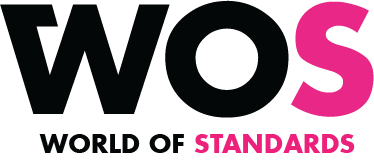ISO 9001 is a set of international standards that provide a framework for quality management systems in businesses of all sizes and industries. ISO 9001 Quality management systems – Requirements is one of the most important and widely used standards in the ISO 9000 series. In this blog post, we will explore the key features and benefits of ISO 9001 and how it can help businesses improve their quality management systems.
ISO 9001 is designed to help businesses of all sizes and industries improve their quality management systems and meet the needs and expectations of their customers and stakeholders. The standard provides a framework for establishing and maintaining an effective quality management system, which includes a set of requirements that businesses must meet to obtain certification.
The key features of ISO 9001 include a strong customer focus, a process-based approach to quality management, and a focus on continual improvement. The standard is based on the Plan-Do-Check-Act (PDCA) model, which is a continuous improvement cycle that involves planning, implementing, reviewing, and improving processes. This approach helps businesses to identify and address quality issues, reduce waste and inefficiencies, and improve customer satisfaction.
Best Chromebook: Google Pixelbook Go
Tech Specs
- 13.3-inch LCD touchscreen display
- Intel Core i5-1135G7
- 256 GB SSD
- 8GB DD4 Ram
- 12.5 battery hours
- 3.1 Pound
ISO 9001 requires businesses to establish and document quality policies, objectives, and procedures that are consistent with the requirements of the standard. It also requires businesses to identify and address risks and opportunities related to their quality management system and to monitor and measure their performance against established metrics. This ensures that businesses have a clear understanding of their quality management system and are able to make data-driven decisions to improve it.
One of the key benefits of ISO 9001 is that it provides a common language and framework for businesses to communicate about quality management. This makes it easier for businesses to collaborate with their customers, suppliers, and other stakeholders to improve quality, reduce costs, and increase efficiency. ISO 9001 certification is also widely recognized and can help businesses to demonstrate their commitment to quality management to their customers and stakeholders.
Overall, ISO 9001 Quality management systems – Requirements is an essential standard for businesses that are serious about improving their quality management systems and meeting the needs and expectations of their customers and stakeholders. It provides a framework for establishing and maintaining an effective quality management system that is focused on customer needs, process improvement, and continual improvement. With ISO 9001 certification, businesses can demonstrate their commitment to quality and improve their competitive position in the marketplace.
Who these are for: Real-world uses for ISO 9001
- Customer satisfaction: By implementing ISO 9001, businesses can focus on meeting the needs and expectations of their customers, which can improve customer satisfaction and loyalty. This can help businesses to retain existing customers and attract new ones.
- Process improvement: ISO 9001 requires businesses to adopt a process-based approach to quality management. This approach helps businesses to identify and address process inefficiencies, reduce waste, and improve the quality of their products or services.
- Competitive advantage: ISO 9001 certification is widely recognized and can help businesses to differentiate themselves from their competitors. It can also demonstrate a commitment to quality management, which can improve the company’s reputation and attract new customers.
- Legal compliance: Many industries and countries require businesses to comply with certain regulations and standards related to quality management. ISO 9001 can help businesses to meet these requirements and avoid legal issues.
- Supply chain management: Many businesses require their suppliers to be ISO 9001 certified. This helps to ensure that their suppliers have effective quality management systems in place, which can reduce the risk of quality issues and disruptions in the supply chain.
- Risk management: ISO 9001 requires businesses to identify and address risks related to their quality management system. This can help businesses to mitigate risks and prevent quality issues before they occur.
- Employee engagement: ISO 9001 requires businesses to engage their employees in the quality management process. This can help to improve employee morale, job satisfaction, and productivity.
The Google Pixelbook Go is a beautiful package, from the gorgeous 13.3 inch touchscreen display and accurate keyboard to the 12-hour battery. It costs a few hundred dollars less than our top ultrabook pick and has nearly identical specs.
And unlike most cheap ultrabooks, the notebook is sturdy, has a fingerprint reader, and comes with a convenient and easily replaceable USB-C charger.
Disclaimer: Prices are at time of the review and subject to change.
Only a quarter of young adults are financially literate. You don’t want to overwhelm them with terrible advice. Best to keep them on track.
JOHN MCCARTHY
Also Read: Journey towards Design Perfection with Google Studio
1. There is always the New Project, the New Opportunity.



